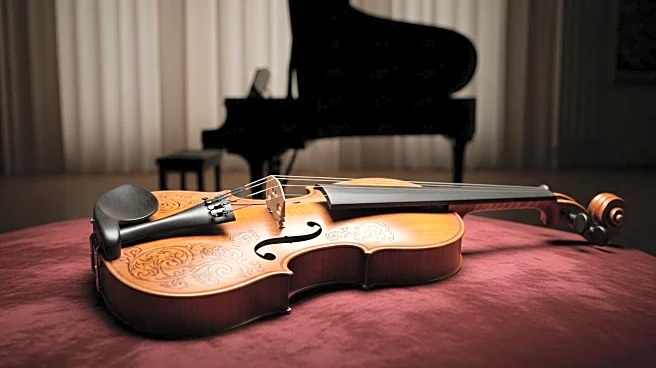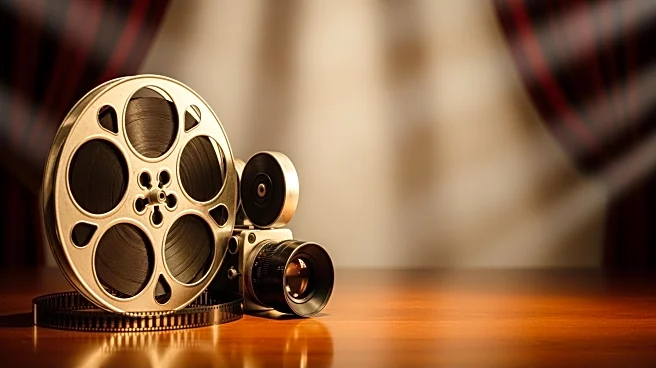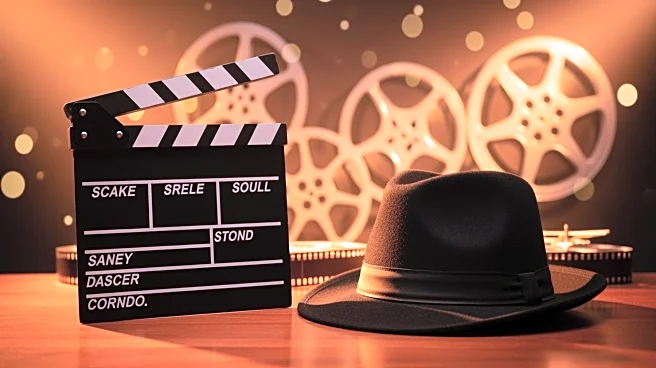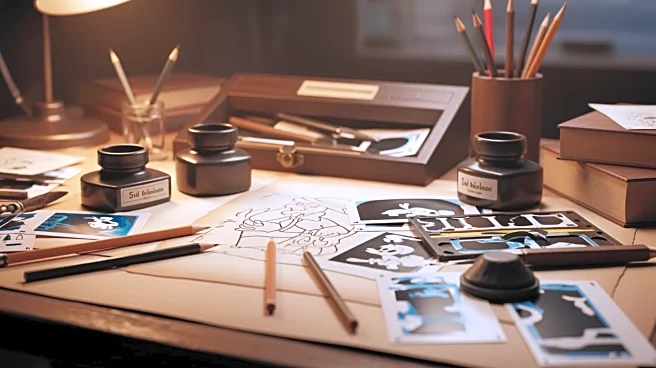What's Happening?
Dr. Paul Wingfield, a composer and director of studies in music at Trinity College, Cambridge, has authenticated a violin once owned by Albert Einstein. The authentication process began after Wingfield attended his brother-in-law's wake, where he was inspired to write a musical about Einstein's life. The play, titled 'Einstein's Violin,' premiered in Highgate, north London, and became a tribute to Wingfield's late brother-in-law, Joseph Schwartz. Following a performance, Wingfield was contacted by an auctioneer seeking verification of a violin believed to have belonged to Einstein. Through extensive research into Einstein's musical interests and handwriting, Wingfield confirmed the violin's authenticity. The instrument, a 1894 Zunterer violin, was expected to sell for £300,000 but ultimately fetched £860,000 at auction.
Why It's Important?
The authentication of Einstein's violin by Dr. Wingfield highlights the intersection of music, history, and science, showcasing the cultural significance of Einstein beyond his scientific contributions. The successful auction sale underscores the value placed on historical artifacts, particularly those associated with prominent figures like Einstein. This event may influence the market for similar historical items, potentially increasing interest and investment in artifacts with verified provenance. Collectors and historians stand to gain from the increased attention and validation of such items, while the auction house benefits from the heightened interest and financial success of the sale.
What's Next?
The authentication and sale of Einstein's violin may prompt further investigations into other historical artifacts associated with notable figures, potentially leading to more discoveries and auctions. Auction houses and collectors might seek similar opportunities to authenticate and sell items with historical significance, leveraging the expertise of specialists like Dr. Wingfield. Additionally, the success of 'Einstein's Violin' as a musical may inspire other creative works that explore the lives of historical figures through art, potentially leading to new productions and collaborations in the arts community.
Beyond the Headlines
The authentication process undertaken by Dr. Wingfield involved meticulous research into Einstein's musical life, including comparisons of handwriting and physical characteristics. This highlights the importance of interdisciplinary approaches in verifying historical artifacts, combining expertise in music, history, and science. The emotional connection Wingfield felt to the violin and its history reflects the personal impact such artifacts can have on individuals, emphasizing the cultural and emotional dimensions of historical preservation.









